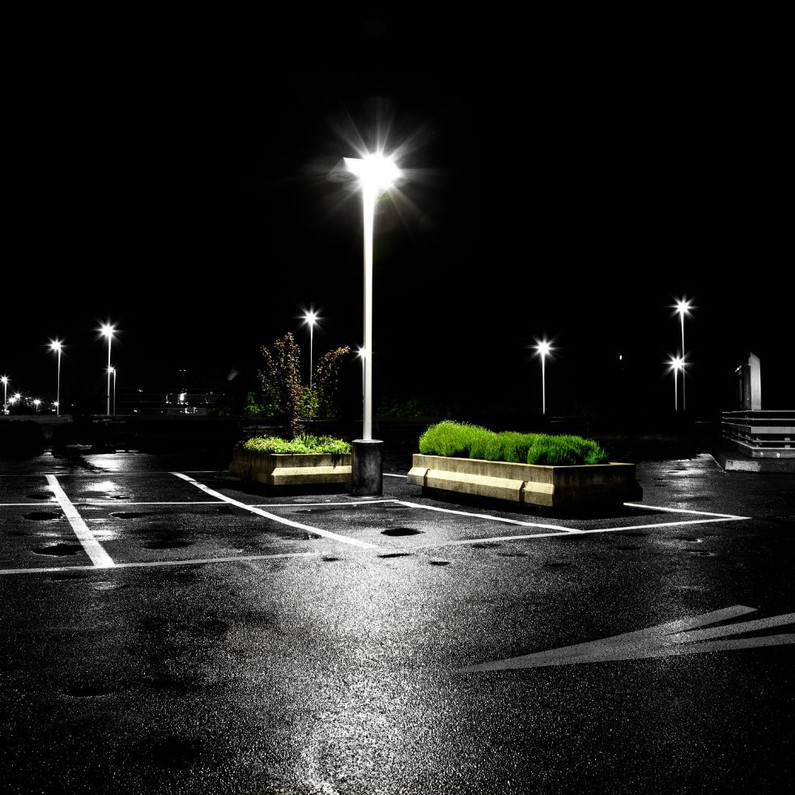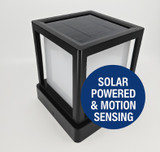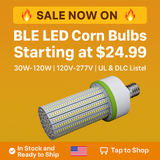6 Things To Consider When Choosing Parking Lot Lights
Lighting is an integral part of any business, and selecting the appropriate parking lot lights is no exception. These lights not only offer safety and security, but they also enhance the overall aesthetics of any commercial space. Discover six things to consider when choosing parking lot lights for your business to ensure optimal performance and greater energy efficiency.
Illumination Level and Uniformity
Proper illumination is something to think about when choosing parking lot lights, as it is essential for maintaining a safe and secure environment. When selecting lights, consider the lumens, which are units that measure the amount of visible light emitted by a source. You may want to choose fixtures that produce sufficient lumen output to uniformly illuminate the entire area without creating any dark spots or glare.
Along with the illumination level, the uniformity ratio is another factor to consider when selecting parking lot lights. The uniformity ratio is the comparison between the brightest and the darkest points in the area. An ideal uniformity ratio ensures that the light is evenly spread throughout the parking lot, reducing the contrast between lit and shadowed areas, which can otherwise be dangerous for both pedestrians and vehicles. Uneven lighting can create shadows where potential hazards or intruders can hide. We recommend having a uniformity ratio close to 4:1 for commercial parking lots.
The type of light distribution is also part of the illumination level and uniformity consideration. Light distribution types are classified as Type I, II, III, IV, and V, each having specific spread patterns and applications. For instance, Type III lighting is commonly used for parking lot lighting as it’s designed to cover a wider area with a forward throw, ensuring even distribution of light.
When choosing the right parking lot lighting, understanding the illumination level, uniformity ratio, and the appropriate light distribution type is essential for providing a safe and visually comfortable environment.
Type of Lighting Technology
There are several types of lighting technologies available for parking lots, such as metal halide, high-pressure sodium, compact fluorescent, and LED lights. Among these, LED lights are the most energy-efficient and durable solution due to their longer lifespan, lower maintenance costs, and greater energy savings. They also offer better color rendering, meaning they can more accurately display colors and details compared to other lighting technologies.
Moreover, LED lights have a directional light output, which means the light is focused in one direction without any loss of energy. This feature allows for increased control over where the light is directed, minimizing light pollution and maximizing energy efficiency.
Energy Efficiency and Operating Costs
Reducing the operating costs of your lighting system is another aspect to mull over when selecting parking lot lights. The initial investment in energy-efficient lighting such as LEDs may be higher, but the long-term savings on energy bills, reduced maintenance costs, and extended life expectancy make it a worthwhile choice for businesses.
LED lights generally consume significantly less energy than traditional lighting technologies, resulting in a substantial decrease in operating costs over time. Additionally, with the advancements in LED technology, the initial costs of installation have decreased significantly, making it a more affordable option.
Lighting Controls and Smart Technology
Adding lighting controls, such as dimmers, motion sensors, and timers, can significantly reduce energy consumption and maintenance costs. Additionally, incorporating smart technology, such as remote-controlled systems and scheduled dimming, allows businesses to manage and customize their lighting systems more efficiently and effectively.
As we migrate toward a more digital, connected world, the integration of smart technology into lighting systems is becoming increasingly common. These advanced controls provide unparalleled convenience and flexibility, offering capabilities far beyond traditional lighting systems.
Motion sensors, for example, can detect activity within a certain radius, turning lights on when movement is registered and dimming or switching off when the area is vacant. This not only conserves energy but also enhances security by deterring unauthorized activity.
Programmable timers allow lights to operate during specific hours, which can be particularly useful in synchronizing lighting with business hours or peak activity times. This function eliminates unnecessary usage and optimizes energy efficiency.
Remote-controlled systems allow a facility to manage lighting settings from any location. This includes altering brightness levels, switching lights on or off, and even adapting the color of the lights. This remote accessibility ensures optimal lighting conditions can be maintained at all times, and adjustments can be made swiftly and effortlessly as circumstances dictate.
Finally, smart technology facilitates monitoring data on energy usage, performance, and potential malfunctions. This data can be instrumental in identifying areas for improvement, scheduling maintenance, and making informed decisions on energy management.
Embracing lighting controls and smart technology can result in substantial energy savings, improved security, and a more responsive, efficient lighting network.
Compliance With Lighting Regulations
It is crucial to ensure that your parking lot lights comply with local and national lighting regulations. These regulations exist to control light pollution, prevent unnecessary energy consumption, and ensure public safety. For instance, the Illuminating Engineering Society (IES) provides guidelines on the adequate levels of illumination for various outdoor environments, including parking lots. Similarly, the Dark-Sky Association has regulations to prevent light pollution, emphasizing downlighting and shielding to confine the light within the intended area.
Some places might also have restrictions regarding the color temperature of lighting—warmer lights are often preferred to reduce skyglow. Furthermore, certain energy codes and standards, like the Energy Policy Act in the US, incentivize the use of energy-efficient lighting technologies such as LEDs. Non-compliance with these regulations could lead to penalties, increased scrutiny, and a potential revamp of your entire lighting system. Therefore, it’s advisable to thoroughly understand and adhere to these regulations when choosing parking lot lights.
Quality and Durability
Lastly, the quality and durability of parking lot lights should not be overlooked. Investing in high-quality fixtures that are designed to withstand harsh weather conditions, such as rain, snow, and fluctuating temperatures, is essential to ensure the longevity of your lighting system. Also, consider the warranty, availability of replacement parts, and ease of installation when making your decision.
The selection of parking lot lights involves careful consideration of numerous factors to maximize safety, visibility, energy efficiency, and the aesthetic appeal of your commercial space. If you’re looking for high-quality lighting solutions, consider Induction Lighting Fixtures. Our LED parking lot lights offer superior performance, energy efficiency, and durability. We design our products to meet all the requirements for optimal parking lot lighting, including high and uniform illumination levels, smart control options, and regulatory compliance. Don’t compromise on the safety and aesthetic appeal of your commercial space. Contact us today to learn more about our products and services and how they can transform your space.

Recent Posts
-
How Long Will Solar Powered Lighting Operate in the Rain?
How Solar Light Fixtures Can Run for 10 Rainy Days If you’ve ever wondered how a Commercial solar li …Jul 30th 2025 -
Spotlight - The IL-SPG54 Smart Solar Walkway Light: Where Performance Meets Simplicity
Introducing the IL-SPG54 Smart Solar Walkway Light: Where Performance Meets Simplicity When it comes …Jun 16th 2025 -
Corn Bulb Sale - While supplies last!
⚡ Limited Time Sale – BLE Series Corn Lamps Starting at $24.99! Stock up now while supplies last – p …Jun 11th 2025






